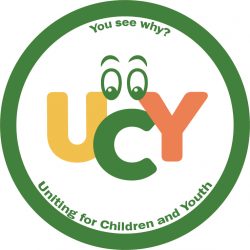Question 2 – Zone 6 Responses
Contents
-
-
- The Question in brief
- Response from:
- Tanya Melissa Dasilva
- Chris Ellis
- No Responses
-
Link: See Responses to Question 2: Parts 1 – 6 for a table summary of the first 6 parts of Question 2.
The Question in Brief
There are 8 parts to this question. “Yes” or “No” answers were required for the first 6 parts, but candidates were welcome to qualify their answers. Part 7 required a prose answer, and part 8 was optional. In brief, the question asked the following. The full text of the question is found at: Question 2 – Systemic Innovation.
- Do you believe that public education needs to evolve from its industrial management practices to ones more appropriate for today? Y/N
- Do you agree that formal scheduling is a major barrier to systemic innovation? Y/N
- Would you act to establish an OCDSB Systemic Innovation Advisory Committee made up of student, parent, teacher, administrator, ministry, university professor, business and community representatives? Y/N
- If “Y” to #3, would you act to have the committee established in time for systematic field studies to begin in September 2019? Y/N
- Would you support developing a board wide inventory of innovative actions by teachers and principals? Y/N
- Would you help to create partnerships with universities that want to conduct studies of how school boards can transition from the industrial model to one that suits today’s needs? Y/N
- What is your vision of the ideal school?
Tanya Melissa Dasilva
- Y
- Y
- Y (This is a great initiative.)
- Y
- Y
- Y (I am a strong supporter of University partnerships, incubators / accelerators and outreach initiatives. Mitacs Canada is also an organization that may be able to help).
- What is your vision of the ideal school? I prefer student-directed learning with the teacher as facilitator. I’m also a big fan of educational technology (EdTech), including e-learning and blending learning. Of course, I believe that teaching and learning should vary among students due to different learning styles. With respect to evaluation, I favor multiple assessments such as participation, testing, assignments, projects, team work, presentations, etc. I strongly believe that students should be well-rounded, not just academically but in other areas as well. For example, taking part in clubs, community initiatives, athletics, volunteering, learning other languages, and so on. In an increasingly interconnected world, it is becoming more important that our students be educated with an international outlook. This is going on right now in our city at the University of Ottawa with their uOGlobal initiative. It prepares students and hones their global skills to become better global citizens.
I would hope that there could be more integration of skills that could help students develop their interests, curiosity and imagination. There are several organizations that could readily assist such as: Canada Learning Code / (coding & digital skills), Actua (STEM), ambiSHEous (leadership & career development for girls), First Robotics Canada, Junior Achievement (financial literacy, work readiness and entrepreneurship), and DECA Ontario (youth business group).
On a further note, because our city, province and the country are becoming more diverse, we need to put more emphasis and awareness into diversity, inclusion and accessibility. It’s going to help students become better at communicating and engaging with others in different settings, especially outside of their social circles and comfort zone.
Lastly, I would like to see increased opportunities for educating our students in intercultural competence, Indigenous education, environmental issues, civic or political engagement, health & wellness, and experimental education.
8. SUPPLEMENTARY QUESTION. Y
Chris Ellis
- Public education needs to take into account the changes to our society and look at other ways to prepare our students. It is essential that school boards try a range of approaches that are outside of the current practices. There are examples that seem to be achieving positive results and the OCDSB should consider them.
- Certainly the current scheduling and expectations around curriculum delivery create a disincentive for other delivery options. So yes, formal scheduling is a barrier.
- I’m not opposed to such a committee, but I would need to do some consulting and reflection on how such a committee would fit into the function of the board. At this point I am not willing to act to establish a Systemic Innovation Advisory Committee. I would be willing to explore the possibility though.
- Possibly, but I think Sept. 2020 would be a more likely date if the consultation was positive.
- Yes, I would support such an inventory and also include an evaluation component so the board could expand those that are successful.
- Yes
- What is your vision of the ideal school? I think the Finnish approach pretty much reflects what I would like to see.
- SUPPLEMENTARY QUESTION. Yes I would be willing to establish a partnership with a university faculty of education to create a “Model 21st Century Teaching School”. I would also support the establishment of an Indigenous school.
No Responses
– Marty Carr

